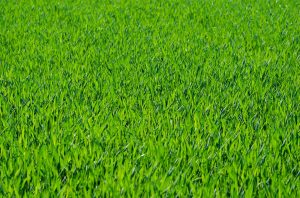Planting a lawn is a simply thing to do. You just scatter the seeds and water them, job done. If this is your view of growing a healthy lawn successfully, then unfortunately there are several gaps in your knowledge. Grass, although being a widespread plant that seems to grow everywhere, can actually be very difficult to cultivate correctly. There are a whole range of factors that come into play and having an understanding of them will help improve the end result significantly.
The root of all knowledge
 These days, the internet houses pretty much the entire sum of human knowledge that was traditionally found in encyclopedias and a lot more besides. If you are seeking information, and do not head straight for the internet then you are an exception to a very well established rule of modern life. There are usually hundreds or even thousands of options provided to you for most common requests online; the trouble comes when you are trying to assess the quality of what you find. So, if you were to try and find a quality DIY turf guide online, then there will be a large number of results, but knowing which ones are accurate, reliable and applicable to your situation can be tricky. There is a slightly unsavoury trend amongst internet users that only seems to get more prevalent with each passing year, and that is to want the exact information they seek in the smallest amount of time possible. As you might imagine, this results in skim reading, missing supporting facts and information, a lack of context and often a complete misconception about what they are reading. This has fed into the recent phenomenon of “fake news”, which has only been as successful as it has due to people’s willingness to accept the fastest snippet of information they see.
These days, the internet houses pretty much the entire sum of human knowledge that was traditionally found in encyclopedias and a lot more besides. If you are seeking information, and do not head straight for the internet then you are an exception to a very well established rule of modern life. There are usually hundreds or even thousands of options provided to you for most common requests online; the trouble comes when you are trying to assess the quality of what you find. So, if you were to try and find a quality DIY turf guide online, then there will be a large number of results, but knowing which ones are accurate, reliable and applicable to your situation can be tricky. There is a slightly unsavoury trend amongst internet users that only seems to get more prevalent with each passing year, and that is to want the exact information they seek in the smallest amount of time possible. As you might imagine, this results in skim reading, missing supporting facts and information, a lack of context and often a complete misconception about what they are reading. This has fed into the recent phenomenon of “fake news”, which has only been as successful as it has due to people’s willingness to accept the fastest snippet of information they see.
The truth is out there
It is not possible for everyone to have deep and detailed knowledge of everything, but knowing enough to understand the need to fact check and cross reference seems to be a dying art. With the emphasis being on speed and minimal effort, an ever increasing amount of poor quality, factually inaccurate and sometimes deliberately misleading information is making its way into the mainstream. This is why recognising who you can trust is essential. Just because a company has paid for an advert does not mean they are an authority on a subject, so finding information from reputable sources should be your goal when trying to learn anything. For our example of planting a lawn, choosing between a guide from a reputable turf supplier such as A View Turf and a guide from a random blog should be a simple choice. A specialist company will have a reputation to protect and the expert knowledge to provide a high quality guide for its customers. This is a sign of a trustworthy source.
 Simple doesn’t mean effective
Simple doesn’t mean effective
Just because a source has as simplified version of the information you are seeking does not make that the best place to learn from. Someone could tell you to drive a car by inserting keys, start engine, drive forwards; which makes perfect sense if you know how to already, but is completely useless if you have never seen a car before. So the next time you are trying to learn something from the internet, think carefully about your sources and try to find the one that’s not too long (overly detailed), not too short (not enough detail), but the one that is just right and leaves you confident in what you are hoping to achieve.



